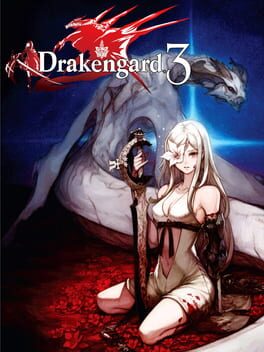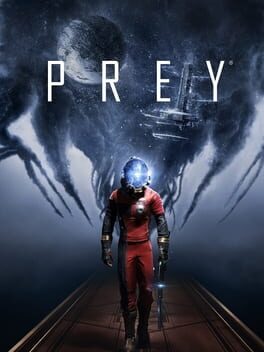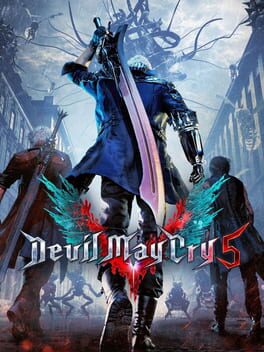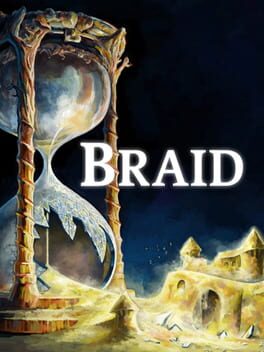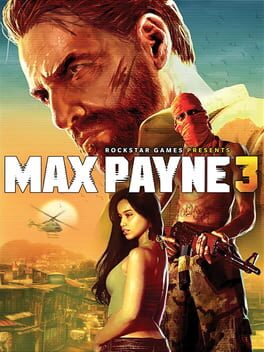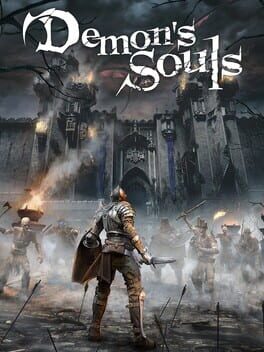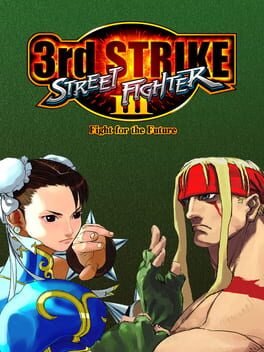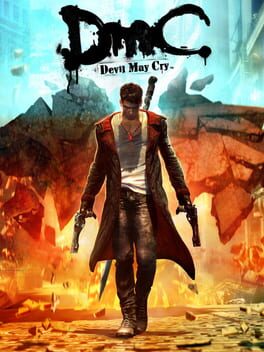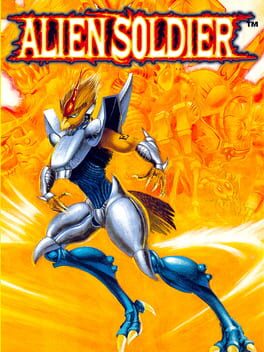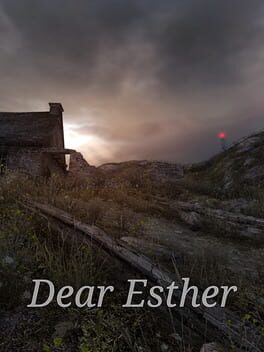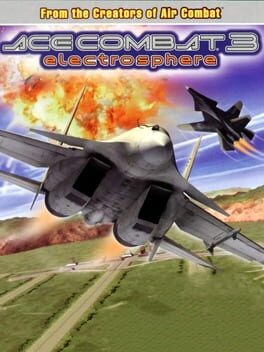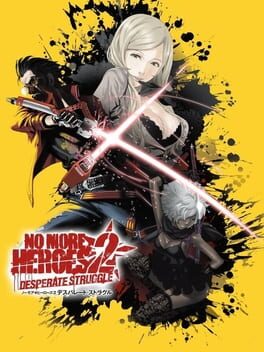KB0
2013
don't care that the frame rate is awful; don't care that the combat is asinine; don't care that the game is unpolished, janky, ugly, and poorly considered in every respect; don't care that it was subject to predatory dlc; don't care that accord's requests are emblematic of some of the worst there is in side quest design; don't care don't care don't care
what i do care about is that this is the ultimate manifestation of YT's disinclination to work in games juxtaposed with his earnest belief in the medium as a vessel for greater things. in his grimmest failure, he finds light at the end of the tunnel. an astonishing exercise in empathy generation, one of the best finales in a game, and the only one of yoko taro's works that makes great use of backwards scripting + sequential playthroughs
what i do care about is that this is the ultimate manifestation of YT's disinclination to work in games juxtaposed with his earnest belief in the medium as a vessel for greater things. in his grimmest failure, he finds light at the end of the tunnel. an astonishing exercise in empathy generation, one of the best finales in a game, and the only one of yoko taro's works that makes great use of backwards scripting + sequential playthroughs
2017
2019
i recognize fully that this game is a goddamn mess but i love it even so. never played anything quite so dysmorphic, so hateful, so disinterested in its own legacy and in its expectant audience (at least until drakengard 3). that it nevertheless delivers unforgettable moments in spades and pseudoscientific genre kitsch in equal proportion just solidifies it as the mgs franchise writ large, a macrocosm of vestigial feelings, directorial gratuitousness, and creeping entropy. still one of the most interesting in kojimas ouevre, astonished mgsv managed to outpace it in charlatanisms
2008
"...you can make a wonderful film about nothing. Look at Fellini. The most important thing in a movie is the actor, and everything which is in front of the camera. And the decadence of the cinema, and we have a certain decadence, comes from the glorification of the director as...being not the servant of the actors, but his master...the job of the director is to discover in the actor something more than he knew he had. The job of the director is to choose what he sees. And to an extent, to create. But a great deal of what is applauded as creation is simply there. It was there, when you put the camera...that actor, that bit of scenery, that veil that hung over the river - it was there! And you're intelligent enough to shoot it...the director should be very intelligent, preferably not intellectual. Because the intellectual is the enemy of all the performing arts." - Orson Welles, 1982
2012
completely unjustifiable and anarchic. what we have in FSR is a surrealist pseudosequel to a 1999 visual novel that was not localized at the time that FSR was, making the game upon original release borderline incomprehensible. compelling analysis can still be written without knowledge of the silver case, but the vast majority have settled into a comfortable deconstructionist lens - austin walkers interpretation is one such prominent take, evincing the game's dissatisfactory DS implementations (useless bonus puzzles, step counter) as part and parcel of the game's antagonistic design, antithetical to its own industry ('It's mean. It's cruel. I kind of love it.')
despite this, one of the most beautiful games ever and the work of someone i am increasingly convinced by the day is one of the most valuable devs in the industry. masterful in tone and delivery, FSR sharply threads together various disparate narrative and thematic strands to excellent effect, resulting in an anti-game package that stands head and shoulders above the crowd by closely resembling something akin to video game poetry. what does FSR pontificate on, if not to act the provocateur or to senselessly challenge convention? in no short order: truth, mystery, identity, purity, artifice, colonialism, primitivism, paradise, death, rebirth, spirituality. the influence of kafka, jodorowsky, and lynch, for example, is felt strongly, but never so strong that it is cynical or unoriginal - to be ensnared in suda's mosaic of cultural references is only to gain appreciation for the ingenuity of his work.
i think FSR and NMH's reputations precede them such that suda is seen as a figure whose sole developmental shtick lies in deconstruction and satire, but FSR is so much more than that - it only requires the player to ascend to match its level, to bask in the sunlight and take solace in ocean waves, to intuit what can't be sensed through mere deduction and speculation. truth is, after all, as natural, forthcoming, and innate as the bright blue skies around us, sometimes.
despite this, one of the most beautiful games ever and the work of someone i am increasingly convinced by the day is one of the most valuable devs in the industry. masterful in tone and delivery, FSR sharply threads together various disparate narrative and thematic strands to excellent effect, resulting in an anti-game package that stands head and shoulders above the crowd by closely resembling something akin to video game poetry. what does FSR pontificate on, if not to act the provocateur or to senselessly challenge convention? in no short order: truth, mystery, identity, purity, artifice, colonialism, primitivism, paradise, death, rebirth, spirituality. the influence of kafka, jodorowsky, and lynch, for example, is felt strongly, but never so strong that it is cynical or unoriginal - to be ensnared in suda's mosaic of cultural references is only to gain appreciation for the ingenuity of his work.
i think FSR and NMH's reputations precede them such that suda is seen as a figure whose sole developmental shtick lies in deconstruction and satire, but FSR is so much more than that - it only requires the player to ascend to match its level, to bask in the sunlight and take solace in ocean waves, to intuit what can't be sensed through mere deduction and speculation. truth is, after all, as natural, forthcoming, and innate as the bright blue skies around us, sometimes.
2020
cannot say i am particularly enamored with the idea that we should frame this discussion in any way that pretends it is not ultimately a willful net loss for games preservation. the idea that in order to aggressively push hardware a development team was enlisted to resurrect a long forsaken ip, in the process fundamentally misunderstanding the majority of its artistic sensibilities (sometimes aggressively so) to showcase a console’s power rubs me the wrong way for several reasons. and there’s potent irony here because we must also remember that in essence sony is banking on from softwares death cult to launch a console cycle for the second time in a row now. recall the invective words of shuhei yoshida, 2009: 'This is crap. This is an unbelievably bad game.' surely what is now a valuable ace in the sleeve for sonys financial strategy in the 9th generation of consoles onwards deserves more respect than this?
as an immediate contrast in the field of remakes, i’ll put forward that at the very least, ff7 is one of the most ubiquitous games of all time - to such a degree that altering its content and expanding on its themes in a rebuild-esque scenario is not only sensible, but appreciated. the same case is difficult to make for demon’s in my opinion.
perhaps bluepoints alterations, seldom rooted in any reverence for aesthetics but instead prioritizing largely perfunctory gameplay, are to your tastes. but they are not to mine. the original demon’s souls is an intensely difficult work to assess, litigate, and reconcile with, to be sure, but whatever your stance on it, it’s difficult to deny how exquisitely it worked with its limitations to fashion something that was entirely inspired and bold, yet quintessentially from software. none of that same evocative ethos is reflected here, and for these reasons i find bluepoint’s iteration extremely difficult to respect - doubly so because im in a position now of having twice been told to give bluepoint a chance on a remake, both times to personally and deeply unsatisfactory results. i only wish more folks had a convenient way of experiencing the original so they were free to pass their own judgments
as an immediate contrast in the field of remakes, i’ll put forward that at the very least, ff7 is one of the most ubiquitous games of all time - to such a degree that altering its content and expanding on its themes in a rebuild-esque scenario is not only sensible, but appreciated. the same case is difficult to make for demon’s in my opinion.
perhaps bluepoints alterations, seldom rooted in any reverence for aesthetics but instead prioritizing largely perfunctory gameplay, are to your tastes. but they are not to mine. the original demon’s souls is an intensely difficult work to assess, litigate, and reconcile with, to be sure, but whatever your stance on it, it’s difficult to deny how exquisitely it worked with its limitations to fashion something that was entirely inspired and bold, yet quintessentially from software. none of that same evocative ethos is reflected here, and for these reasons i find bluepoint’s iteration extremely difficult to respect - doubly so because im in a position now of having twice been told to give bluepoint a chance on a remake, both times to personally and deeply unsatisfactory results. i only wish more folks had a convenient way of experiencing the original so they were free to pass their own judgments
to disparage 3rd strike is often blasphemy in fighting game circles. for many, this is the ur-fighting game, a dizzying concoction of tight and expressionist mechanics, gorgeous spritework, and a dnb soundtrack that is absolutely fuego. it even has that little fundamental spice that all premier fighting games must aspire to possess: a disregard for balance. most modern titles would never dare nerf a character so significantly purely for thematic purposes, but then again, no modern title would ever think to include characters like twelve or chun-li (edit: this is a patent lie. tekken 7 season 3 had both leroy and fahkumram.)
still, what makes this game fascinating years on has little to do with any of its individual elements. fundamentally, it's the mood. it's a game that feels as though it was made on the verge of something great and unknown, and is one of those rare few titles i'll posit encapsulates a certain je ne sais quois, a snapshot of a particular zeitgeist heading into a new millennium. sure, you can point to the more overt references and stylings - strong WWF influence, character select rap, yang, yun, and q are maybe the most 90s characters ever designed, the illuminati as an antagonistic force and its seemingly benevolent villain - but more importantly, it's a composite of characters who are just wandering, trying to find themselves in some instances or seeking mastery in others. there's no pressing tournament to attend to, and even the machinations of the literal illuminati are vestigial, with its plotting mostly centered around biblical rivalry between tyrants. street fighter 3 was originally just about a new generation - itself neatly characterized as 'of its time' - but 3rd strike flips the script. rather than establishing new legends, this game is about characters unsure about what the future entails, about what their next move should be, about what it even means to continue fighting - they waver, they fail, they practice, they move on. even though these ideas are reflected in little moments (chun-li teaching children to put up their dukes, elena reflecting on her journey and her future with a pen pal, alex losing to ryu but refusing to back down),even just aesthetically this theme is completely overpowering - its what imbues 3rd strike with a kind of melancholic ambience, but also what fuels the players' determination to prove themselves.
even better, to this day, this is still the only street fighter that is aesthetically unique to itself. street fighter 2 features worldly caricatures, alpha often feels like it lacks confidence or that it's missing something, 4 is nostalgic pageantry, and 5 is a slipshod mess of meaningless platitudes with no direction. this is the closest capcom ever got to imbuing their flagship franchise with unique stylings; it's something that actually has character and personality comparable to an SNK title. this, probably more than the joy of hitting a parry, setting up aegis reflectors, or getting in my opponent's head, is probably what keeps me coming back. fight for the future, so what's it gonna be, the third strike y'all it's street fighter 3
still, what makes this game fascinating years on has little to do with any of its individual elements. fundamentally, it's the mood. it's a game that feels as though it was made on the verge of something great and unknown, and is one of those rare few titles i'll posit encapsulates a certain je ne sais quois, a snapshot of a particular zeitgeist heading into a new millennium. sure, you can point to the more overt references and stylings - strong WWF influence, character select rap, yang, yun, and q are maybe the most 90s characters ever designed, the illuminati as an antagonistic force and its seemingly benevolent villain - but more importantly, it's a composite of characters who are just wandering, trying to find themselves in some instances or seeking mastery in others. there's no pressing tournament to attend to, and even the machinations of the literal illuminati are vestigial, with its plotting mostly centered around biblical rivalry between tyrants. street fighter 3 was originally just about a new generation - itself neatly characterized as 'of its time' - but 3rd strike flips the script. rather than establishing new legends, this game is about characters unsure about what the future entails, about what their next move should be, about what it even means to continue fighting - they waver, they fail, they practice, they move on. even though these ideas are reflected in little moments (chun-li teaching children to put up their dukes, elena reflecting on her journey and her future with a pen pal, alex losing to ryu but refusing to back down),even just aesthetically this theme is completely overpowering - its what imbues 3rd strike with a kind of melancholic ambience, but also what fuels the players' determination to prove themselves.
even better, to this day, this is still the only street fighter that is aesthetically unique to itself. street fighter 2 features worldly caricatures, alpha often feels like it lacks confidence or that it's missing something, 4 is nostalgic pageantry, and 5 is a slipshod mess of meaningless platitudes with no direction. this is the closest capcom ever got to imbuing their flagship franchise with unique stylings; it's something that actually has character and personality comparable to an SNK title. this, probably more than the joy of hitting a parry, setting up aegis reflectors, or getting in my opponent's head, is probably what keeps me coming back. fight for the future, so what's it gonna be, the third strike y'all it's street fighter 3
2013
i'd wager there are many who try to undertake a more fair critical analysis when writing about this game. for the sake of transparency, let's just say i can't. this isn't about a stringent inability to separate art from the artist, this is about my inability to separate art from its era.
- it is emblematic of a dark period in capcoms oeuvre, in which they repeatedly made awful creative and financial decisions in an attempt to both maximize revenue and appeal to western markets
- it is easily one of the most repugnant, misogynistic games ive ever played; it possesses some of the worst writing ive ever seen in a game while still supposedly aspiring to shakespearean greatness. none of its musings on society ever come together nor can it be enjoyed as a charming romp when so little of its characterization is either endearing or palatable
- the calvacade of capital G Gamers who were thoroughly unimpressed by this title inspired a desperate and petty form of tribalism from the likes of varying industry figures that continues to resurface to this day...
- ...which, inadvertently, largely reminds of a kind of rampant xenophobia that existed in the seventh generation of games, a quiet dismissal of anything japanese in the medium and a refusal to engage with their works on sincere grounds (look no further than the original niers critical admonishment). ninja theory felt completely comfortable disparaging and blaspheming the original franchise that they now held the keys to in an era where inescapable indie 'beloveds' like jonathan blow and phil fish rallied to antagonize an entire country's output to the medium
- ninja theory had zero right to patronize or criticize, by the way, given that itsuno had to babysit them to teach them anything at all about proper enemy design, combat design, and so on and so forth. their action game couldn't even be considered average until the release of the special edition
- honestly think the games environments look like dogshit, considering it's the one thing everyone is unanimous in praise of. 2000s movie poster type bullshit
a stark reminder of an awful time to be a participant in the medium and the sole reason i refuse to be accessory to ninja theory in any financial capacity. sacrilege if im being real. hilarious that dmc5 reconciles with this games western sensibilities to often brilliant effect by comparison
- it is emblematic of a dark period in capcoms oeuvre, in which they repeatedly made awful creative and financial decisions in an attempt to both maximize revenue and appeal to western markets
- it is easily one of the most repugnant, misogynistic games ive ever played; it possesses some of the worst writing ive ever seen in a game while still supposedly aspiring to shakespearean greatness. none of its musings on society ever come together nor can it be enjoyed as a charming romp when so little of its characterization is either endearing or palatable
- the calvacade of capital G Gamers who were thoroughly unimpressed by this title inspired a desperate and petty form of tribalism from the likes of varying industry figures that continues to resurface to this day...
- ...which, inadvertently, largely reminds of a kind of rampant xenophobia that existed in the seventh generation of games, a quiet dismissal of anything japanese in the medium and a refusal to engage with their works on sincere grounds (look no further than the original niers critical admonishment). ninja theory felt completely comfortable disparaging and blaspheming the original franchise that they now held the keys to in an era where inescapable indie 'beloveds' like jonathan blow and phil fish rallied to antagonize an entire country's output to the medium
- ninja theory had zero right to patronize or criticize, by the way, given that itsuno had to babysit them to teach them anything at all about proper enemy design, combat design, and so on and so forth. their action game couldn't even be considered average until the release of the special edition
- honestly think the games environments look like dogshit, considering it's the one thing everyone is unanimous in praise of. 2000s movie poster type bullshit
a stark reminder of an awful time to be a participant in the medium and the sole reason i refuse to be accessory to ninja theory in any financial capacity. sacrilege if im being real. hilarious that dmc5 reconciles with this games western sensibilities to often brilliant effect by comparison
1995
this is a title that feels downright oppressive at first. your protagonist takes up an absolutely absurd amount of screen real estate; you have a wealth of complex techniques to master mapped to only three different buttons; there's six different weapons, not all of which are applicable in every scenario, and there are upwards of twenty different ways of representing your status and resources; the only available difficulties are SUPEREASY and SUPERHARD. this is unruly, frantic, and demanding, and you'll likely spend a fair amount of time dying repeatedly just to make heads or tails of the game because it shoves you right into the crossfire, before you might even be aware that the entire game is tantamount to a boss rush.
stick with it. conquer the game on SUPERHARD, no matter how arduous. it's the rare game that makes the most of every single mechanic on offer, where each design implementation is representative of an uncanny degree of fine-tuning and polish. i can point to any one detail in this game, no matter how consequential or intangible, and give you a sensible, informative, and well-articulated answer for why it was designed this way. doubtless the masters at treasure can, too. it's tooth-and-nail adrenaline-inducing frenzy condensed into an hour's run time
stick with it. conquer the game on SUPERHARD, no matter how arduous. it's the rare game that makes the most of every single mechanic on offer, where each design implementation is representative of an uncanny degree of fine-tuning and polish. i can point to any one detail in this game, no matter how consequential or intangible, and give you a sensible, informative, and well-articulated answer for why it was designed this way. doubtless the masters at treasure can, too. it's tooth-and-nail adrenaline-inducing frenzy condensed into an hour's run time
2012
theres little reason to be hyperbolic in dismantling this title but chinese rooms school of design back in the day aspired to a subversion of norms and convention. an attempt to shrug off perceived limitations and supposedly counterfeit worlds and supplant them with something more poignant, expressive. unfortunately this approach rather paradoxically furthered the artifice of their game worlds, and if it didn't hold up on release when compared to then-contemporaries like journey, it has most certainly not held up today. cannot regard a game as haunting if at every turn i feel the hand of its masters, if at every moment im confronted with its castration. pageantry
play the english patch. this is one of the most ambitious games of its era and would be one of the most revered PS1 games of all time had it been localized by agness kaku, as was originally intended. perfect UI design, sleek aesthetics and extremely considered plane designs, cold and callous electronic sounds - one of those games where everything is designed with attention to detail. featuring a plot laden in transhumanism, corporate warfare, interpersonal drama, and a harsh futurist atmosphere, this is one of the all-time great 90s works of cyberpunk. it's a little on the easier side for my liking, even on its hardest difficulty, but there's really nothing else like it. this was a strong influence for yoko taro and co. in developing drakengard, with influences extending even to nier's development, and it shows.
https://www.youtube.com/watch?v=SXxk4FRdYrw you'll never get better than this, i'm not apologizing
https://www.youtube.com/watch?v=SXxk4FRdYrw you'll never get better than this, i'm not apologizing
"In combat, one of the key aspects that’s important in this game is the violence of the clashing of swords." - Hidetaka Miyazaki
first, the crossing of wires. somethings wrong. your instincts betray you. this, at first glance, no longer has the same proclivities and tendencies as the rest of fromsoftwares recent output. meandering means death, hesitation means defeat, any halfwit grunt can cut through you like butter if your wits stray for even a second, and if his buddies gang up on you, youre in for a world of hurt. you’re the reaper, the shinobi ideal, but you’re more fragile than ever. this is interesting.
then - the learning, the evolution in slow tides. prodding around in unfamiliar structures. bosses can appear out of thin air, rather than the previous expectation that they'd be slotted into fog gates of yore. okay. stealth is favoured, but usually set up in such a way that there’s always going to be one stowaway to clash blades with head-on. got it. brevity characterizes the flow of the game between major skill-checks. you explore, carefully, always uncertain what threat lies around the corner that can prove to be more merciless than the last
then - the mastery. it occurs far too early. the magician’s out of tricks.
fundamentally, this is a game of contradictions. its been a while since i’ve felt this complicated about a game. let’s try exploring those contradictions.
contradiction #1: this game is exactly what i wanted fromsoftware to do. it is also exactly what i did not want them to do.
contradiction #2: perpetual tensions between systems. this is not a katana folded 1000 times but a katana dulled and made jagged, echoing a precarious split between shinobi and samurai
contradiction #3: i like this game more than bloodborne - the irony, quite frankly, is that it achieves bloodborne’s intended design goals far more effectively, and while it fails to reach the prodigious heights of either demon’s souls or dark souls 1 i’m still happy to let it settle into a quaint and snug third place. it is also, categorically, a worse game than bloodborne, or at the very least has a far less structurally sound foundation.
contradiction #4: this is the best western style action adventure game in a very, very long time. it was made by japanese developers and features a mythos entirely derived from the sengoku era and eastern spirituality
elaboration #1: leaning more heavily into the action adventure template was unequivocally the right decision. with roots extending back to artorias of the abyss, fromsoft has grown to capitalize on action to the detriment of their respective games systems, coming to an uneasy conclusion in bloodborne and actively harming the game in dark souls 3. sekiro presents a better alternative - much of its gameplay loop is oriented around stealth and optimizing deathblows with a quickening pace of bosses checking your 'shinobi' skills, but it's all very kitchen sink. the stealth is welcome, but hardly worthy of any mantle. while most of these bosses largely test the same skills as other modern fromsoft titles with a few exceptions, they're still the most visceral modern fromsoftware has ever gotten. unfortunately, that's exactly it, isn't it? you're still learning the same enemy tells even if they're more competently telegraphed and executed this time, you're still deflecting instead of rolling as your most optimal strategy, youre still bombarded by a wealth of consumables and questionable resource prioritization, you still have to deal with arbitrary skill trees that rarely, if ever, feel useful or necessary and needlessly overencumber a game that’d easily possess a stronger core without them. it’s wonderful that there’s a little bit of variance in playstyle and experimentation here - i emphasized a showdown style meant to compensate for wolf’s fragility, refusing to back down from aggressors, and a friend opted to play far more shrewdly and dishonorably, stressing the value of attrition and acting the gadfly - but it hardly feels like the changes are enough at the end of the day. these matters are compounded by its narrative, which treads on a great deal of familiar ground while imparting nothing truly memorable or unique to itself. its construction remains thoughtful and intricate, but in execution there is little that keeps me thinking about the experience in any meaningful way - when i realized that the game was content to echo dark souls 1′s themes yet again through a different cultural lens, my heart sank a little bit (this description belies the fact that i genuinely think theres a bit more going on here than such a reductive expression would imply; very different focus, similar vehicle). to reiterate, this isn’t to say what’s on offer is mediocre, and certainly there are enough tiny flourishes to keep it engaging (the folding screen monkeys fight is probably my second favourite in the game, a certain boss acting completely cowardly to kick off the second phase made me smile, fountainhead palace is probably my new favourite area in a fromsoft title), but it is rarely thought-provoking or greater than itself. sekiro is simply sekiro - modest, unassuming, predictable. a cultivation of a decades worth of design that is hardly profligate or odious, but certainly questionable, especially when so many qualms with the title are carried over wholesale as well, as though it was not enough to explore the same grounds yet again. this is easily the worst camera in a modern fromsoft game yet, and the fact that no efforts have been undertaken to fix this boggles the mind - at least, other than implementing several huge areas to compensate for this fact. despite this, the environments being so aesthetically busy can be a burden of equal proportion - this is most readily evinced in the gyoubu fight, and sometimes lady butterfly and the final boss. add to all this the constant need to reset the world state at checkpoints to advance side quests, the constant problems with collision, the bizarre progression structure at times, slightly lesser level design - the list goes on. as much as it purports to be different, it’s ultimately much of the same.
elaboration #2: “ There are lots of different things you can do that will help you in battle. The game is designed in such a way that even if you’re not insanely good at the game, you can figure out how to get through it if you think about it and play it smart.” - Hidetaka Miyazaki
this is true, but only to an extent. when you see an apparition type enemy or a beast type enemy, it’s a foregone conclusion what resources must be expended. similarly, other consumables are often just temporal difficulty mitigation with the exact same function as previous fromsoft games. it’s one thing for a fight to encourage strategy - it’s quite another for it to boil down to resource consumption. to be clear, it’s not as though that can’t be part and parcel of an appropriate strategy, just that the connections are despairingly easy to make - once you’ve fought one headless or one shichimen warrior, you’ve fought ‘em all and know what tools you need to bring to the table, as welcome as their inclusions are. sometimes players can make connections on their own - as with the usage of snap seeds with the corrupted monk, or the spear on the guardian ape - but these moments are few and far in between, and there are rarely any truly different fights that encourage a playstyle that breaks the mold. for instance, very few bosses make good use of stealth in this game - when so many rely on deflects, it’s hard to feel like you’re playing as a shinobi might. the only thing emphasized here in such an instance would be wolf’s frailty, which enables a resurrection mechanic that is a bit of a mixed bag, seldom allowing for neat strategies (as with the cyanide tooth) but instead often allowing a brief moment to recollect and cheesy escape opportunities in equal measure.
perhaps this complaint is a little too conceptual and is asking too much of fromsoft, but i’d like to point to the easiest example, and the worst boss in their catalogue: the demon of hatred. this bloodborne-lite boss reflects none of the strengths of sekiro while allowing for very little in the way of emergent strategy, to an astonishing degree. in the minutiae, his inclusion is considered, but in practice it’s horribly bland. even if the demon of hatred somehow made better use of the game’s concept - of being a clever shinobi - surely the most clever thing to do wouldn’t be to dart in and out of the flames of battle just to hit his nutsack. both operative ‘good strategies’ otherwise predominantly revolve around the usage of two shinobi tools, one of which is cleverly hinted at but both of which are yet again arbitrarily locked behind upgrade trees that have little to no place in a game that seemingly wants to be as combat-focused game like this. were it not for the swathes of experimentation i did at the beginning i’d find it hard pressed to say i’d have improved at the game at all because there is rarely, if ever, an expansion of design allowing for growth. the final boss appropriately tests you on every skill you should have learned over the course of the game, but if the path you took to get there didn’t foster mastery, of what use was the path? games like the original dmc used their upgrade systems to foster player experimentation and to give players a goal in the horizon to look forward to at all times, all of which dovetailed into eventual mastery. sekiro uses an unnecessary blend of skill points, sen, and upgrade materials to push skills that are often very useful but which rarely lend themselves to emergent strategy or player growth
the fact is, the game is disappointingly limited and rarely adjudicates for anything other than hit and run tactics or refusing to yield to oncoming adversity, making little to no use of bosses that could be genuinely interesting using the key concept of being a shinobi. what we have on offer is very solid, and palatable - these boss fights are quite good, but in the context of a long-running series they could be something more. the closest we have to new and interesting encounters are the folding screen monkeys and the divine dragon fight, the latter of which disappointingly resembles a zelda boss more than anything.
elaboration #3: this is a point continuing on from elaboration #2. the posture system is admittedly quite good, and as i’ve posited once the pure adrenaline of combat is at an all-time high because to do well in combat you have to be willing to risk life and limb. in bloodborne, the rally system was very flawed and rarely pushed one to get up close and personal as they should - there were far too many opportunities to slink back and manipulate the artificial intelligence into performing a short-reaching attack so that you could heal maybe one or twenty times, and hardly any meaningful tradeoffs present included to increase depth. here, a better balance is struck, closer to what these games should have looked like in the first place. you start off with minimal health gourds, and you only get 10 as a maximum; a limited number of pellets that are often easy to run out of supplement your ability to heal, either in a desperate pinch or to mitigate chip damage. while it’s easy to say the pellets are unnecessary, i find their inclusion worthwhile at least to a degree simply because of their limitation - you only ever have 3 at a time, and for a great duration of the game they’re not easy to stockpile.
elaboration #4: despite everything i’ve just said - this is the most charitable interpretation i could have towards this game. and i do sincerely mean it. there’s something to be said for the game that is perennially flawed, and yet i’d choose it over most others. this is one such game and for a time, figuring out its rhythms and secrets is both highly worthwhile and highly satisfactory. its jokingly alien soldier-esque structure and cavalcade of more linear sequences of threats to dispatch makes for something more engrossing than it should be, something better than the sum of its parts. this concoction could not be more appealing by contrast, especially when measured against its milquetoast contemporaries: god of war, assassin’s creed, tomb raider, uncharted, and so on and so forth. with one entry alone fromsoft has proven themselves capable of creating an action adventure title in a similar vein that is more focused, compelling, and dynamic than any aforementioned title, which is something worth discussing that i feel is left out in discussion surrounding this title. it’s a difficult quality to encapsulate or articulate, though, so i’d understand the hesitance to begin engaging with this element of the game.
what sekiro represents to me is that there's more work to do, but this is an interesting and engaging way to cap off fromsofts recent output. i've soured on them fairly recently and it's nice to see that they're somewhat capable of at least some new orchestration - i can only hope that when elden ring is released, it will be far more experimental.
first, the crossing of wires. somethings wrong. your instincts betray you. this, at first glance, no longer has the same proclivities and tendencies as the rest of fromsoftwares recent output. meandering means death, hesitation means defeat, any halfwit grunt can cut through you like butter if your wits stray for even a second, and if his buddies gang up on you, youre in for a world of hurt. you’re the reaper, the shinobi ideal, but you’re more fragile than ever. this is interesting.
then - the learning, the evolution in slow tides. prodding around in unfamiliar structures. bosses can appear out of thin air, rather than the previous expectation that they'd be slotted into fog gates of yore. okay. stealth is favoured, but usually set up in such a way that there’s always going to be one stowaway to clash blades with head-on. got it. brevity characterizes the flow of the game between major skill-checks. you explore, carefully, always uncertain what threat lies around the corner that can prove to be more merciless than the last
then - the mastery. it occurs far too early. the magician’s out of tricks.
fundamentally, this is a game of contradictions. its been a while since i’ve felt this complicated about a game. let’s try exploring those contradictions.
contradiction #1: this game is exactly what i wanted fromsoftware to do. it is also exactly what i did not want them to do.
contradiction #2: perpetual tensions between systems. this is not a katana folded 1000 times but a katana dulled and made jagged, echoing a precarious split between shinobi and samurai
contradiction #3: i like this game more than bloodborne - the irony, quite frankly, is that it achieves bloodborne’s intended design goals far more effectively, and while it fails to reach the prodigious heights of either demon’s souls or dark souls 1 i’m still happy to let it settle into a quaint and snug third place. it is also, categorically, a worse game than bloodborne, or at the very least has a far less structurally sound foundation.
contradiction #4: this is the best western style action adventure game in a very, very long time. it was made by japanese developers and features a mythos entirely derived from the sengoku era and eastern spirituality
elaboration #1: leaning more heavily into the action adventure template was unequivocally the right decision. with roots extending back to artorias of the abyss, fromsoft has grown to capitalize on action to the detriment of their respective games systems, coming to an uneasy conclusion in bloodborne and actively harming the game in dark souls 3. sekiro presents a better alternative - much of its gameplay loop is oriented around stealth and optimizing deathblows with a quickening pace of bosses checking your 'shinobi' skills, but it's all very kitchen sink. the stealth is welcome, but hardly worthy of any mantle. while most of these bosses largely test the same skills as other modern fromsoft titles with a few exceptions, they're still the most visceral modern fromsoftware has ever gotten. unfortunately, that's exactly it, isn't it? you're still learning the same enemy tells even if they're more competently telegraphed and executed this time, you're still deflecting instead of rolling as your most optimal strategy, youre still bombarded by a wealth of consumables and questionable resource prioritization, you still have to deal with arbitrary skill trees that rarely, if ever, feel useful or necessary and needlessly overencumber a game that’d easily possess a stronger core without them. it’s wonderful that there’s a little bit of variance in playstyle and experimentation here - i emphasized a showdown style meant to compensate for wolf’s fragility, refusing to back down from aggressors, and a friend opted to play far more shrewdly and dishonorably, stressing the value of attrition and acting the gadfly - but it hardly feels like the changes are enough at the end of the day. these matters are compounded by its narrative, which treads on a great deal of familiar ground while imparting nothing truly memorable or unique to itself. its construction remains thoughtful and intricate, but in execution there is little that keeps me thinking about the experience in any meaningful way - when i realized that the game was content to echo dark souls 1′s themes yet again through a different cultural lens, my heart sank a little bit (this description belies the fact that i genuinely think theres a bit more going on here than such a reductive expression would imply; very different focus, similar vehicle). to reiterate, this isn’t to say what’s on offer is mediocre, and certainly there are enough tiny flourishes to keep it engaging (the folding screen monkeys fight is probably my second favourite in the game, a certain boss acting completely cowardly to kick off the second phase made me smile, fountainhead palace is probably my new favourite area in a fromsoft title), but it is rarely thought-provoking or greater than itself. sekiro is simply sekiro - modest, unassuming, predictable. a cultivation of a decades worth of design that is hardly profligate or odious, but certainly questionable, especially when so many qualms with the title are carried over wholesale as well, as though it was not enough to explore the same grounds yet again. this is easily the worst camera in a modern fromsoft game yet, and the fact that no efforts have been undertaken to fix this boggles the mind - at least, other than implementing several huge areas to compensate for this fact. despite this, the environments being so aesthetically busy can be a burden of equal proportion - this is most readily evinced in the gyoubu fight, and sometimes lady butterfly and the final boss. add to all this the constant need to reset the world state at checkpoints to advance side quests, the constant problems with collision, the bizarre progression structure at times, slightly lesser level design - the list goes on. as much as it purports to be different, it’s ultimately much of the same.
elaboration #2: “ There are lots of different things you can do that will help you in battle. The game is designed in such a way that even if you’re not insanely good at the game, you can figure out how to get through it if you think about it and play it smart.” - Hidetaka Miyazaki
this is true, but only to an extent. when you see an apparition type enemy or a beast type enemy, it’s a foregone conclusion what resources must be expended. similarly, other consumables are often just temporal difficulty mitigation with the exact same function as previous fromsoft games. it’s one thing for a fight to encourage strategy - it’s quite another for it to boil down to resource consumption. to be clear, it’s not as though that can’t be part and parcel of an appropriate strategy, just that the connections are despairingly easy to make - once you’ve fought one headless or one shichimen warrior, you’ve fought ‘em all and know what tools you need to bring to the table, as welcome as their inclusions are. sometimes players can make connections on their own - as with the usage of snap seeds with the corrupted monk, or the spear on the guardian ape - but these moments are few and far in between, and there are rarely any truly different fights that encourage a playstyle that breaks the mold. for instance, very few bosses make good use of stealth in this game - when so many rely on deflects, it’s hard to feel like you’re playing as a shinobi might. the only thing emphasized here in such an instance would be wolf’s frailty, which enables a resurrection mechanic that is a bit of a mixed bag, seldom allowing for neat strategies (as with the cyanide tooth) but instead often allowing a brief moment to recollect and cheesy escape opportunities in equal measure.
perhaps this complaint is a little too conceptual and is asking too much of fromsoft, but i’d like to point to the easiest example, and the worst boss in their catalogue: the demon of hatred. this bloodborne-lite boss reflects none of the strengths of sekiro while allowing for very little in the way of emergent strategy, to an astonishing degree. in the minutiae, his inclusion is considered, but in practice it’s horribly bland. even if the demon of hatred somehow made better use of the game’s concept - of being a clever shinobi - surely the most clever thing to do wouldn’t be to dart in and out of the flames of battle just to hit his nutsack. both operative ‘good strategies’ otherwise predominantly revolve around the usage of two shinobi tools, one of which is cleverly hinted at but both of which are yet again arbitrarily locked behind upgrade trees that have little to no place in a game that seemingly wants to be as combat-focused game like this. were it not for the swathes of experimentation i did at the beginning i’d find it hard pressed to say i’d have improved at the game at all because there is rarely, if ever, an expansion of design allowing for growth. the final boss appropriately tests you on every skill you should have learned over the course of the game, but if the path you took to get there didn’t foster mastery, of what use was the path? games like the original dmc used their upgrade systems to foster player experimentation and to give players a goal in the horizon to look forward to at all times, all of which dovetailed into eventual mastery. sekiro uses an unnecessary blend of skill points, sen, and upgrade materials to push skills that are often very useful but which rarely lend themselves to emergent strategy or player growth
the fact is, the game is disappointingly limited and rarely adjudicates for anything other than hit and run tactics or refusing to yield to oncoming adversity, making little to no use of bosses that could be genuinely interesting using the key concept of being a shinobi. what we have on offer is very solid, and palatable - these boss fights are quite good, but in the context of a long-running series they could be something more. the closest we have to new and interesting encounters are the folding screen monkeys and the divine dragon fight, the latter of which disappointingly resembles a zelda boss more than anything.
elaboration #3: this is a point continuing on from elaboration #2. the posture system is admittedly quite good, and as i’ve posited once the pure adrenaline of combat is at an all-time high because to do well in combat you have to be willing to risk life and limb. in bloodborne, the rally system was very flawed and rarely pushed one to get up close and personal as they should - there were far too many opportunities to slink back and manipulate the artificial intelligence into performing a short-reaching attack so that you could heal maybe one or twenty times, and hardly any meaningful tradeoffs present included to increase depth. here, a better balance is struck, closer to what these games should have looked like in the first place. you start off with minimal health gourds, and you only get 10 as a maximum; a limited number of pellets that are often easy to run out of supplement your ability to heal, either in a desperate pinch or to mitigate chip damage. while it’s easy to say the pellets are unnecessary, i find their inclusion worthwhile at least to a degree simply because of their limitation - you only ever have 3 at a time, and for a great duration of the game they’re not easy to stockpile.
elaboration #4: despite everything i’ve just said - this is the most charitable interpretation i could have towards this game. and i do sincerely mean it. there’s something to be said for the game that is perennially flawed, and yet i’d choose it over most others. this is one such game and for a time, figuring out its rhythms and secrets is both highly worthwhile and highly satisfactory. its jokingly alien soldier-esque structure and cavalcade of more linear sequences of threats to dispatch makes for something more engrossing than it should be, something better than the sum of its parts. this concoction could not be more appealing by contrast, especially when measured against its milquetoast contemporaries: god of war, assassin’s creed, tomb raider, uncharted, and so on and so forth. with one entry alone fromsoft has proven themselves capable of creating an action adventure title in a similar vein that is more focused, compelling, and dynamic than any aforementioned title, which is something worth discussing that i feel is left out in discussion surrounding this title. it’s a difficult quality to encapsulate or articulate, though, so i’d understand the hesitance to begin engaging with this element of the game.
what sekiro represents to me is that there's more work to do, but this is an interesting and engaging way to cap off fromsofts recent output. i've soured on them fairly recently and it's nice to see that they're somewhat capable of at least some new orchestration - i can only hope that when elden ring is released, it will be far more experimental.
